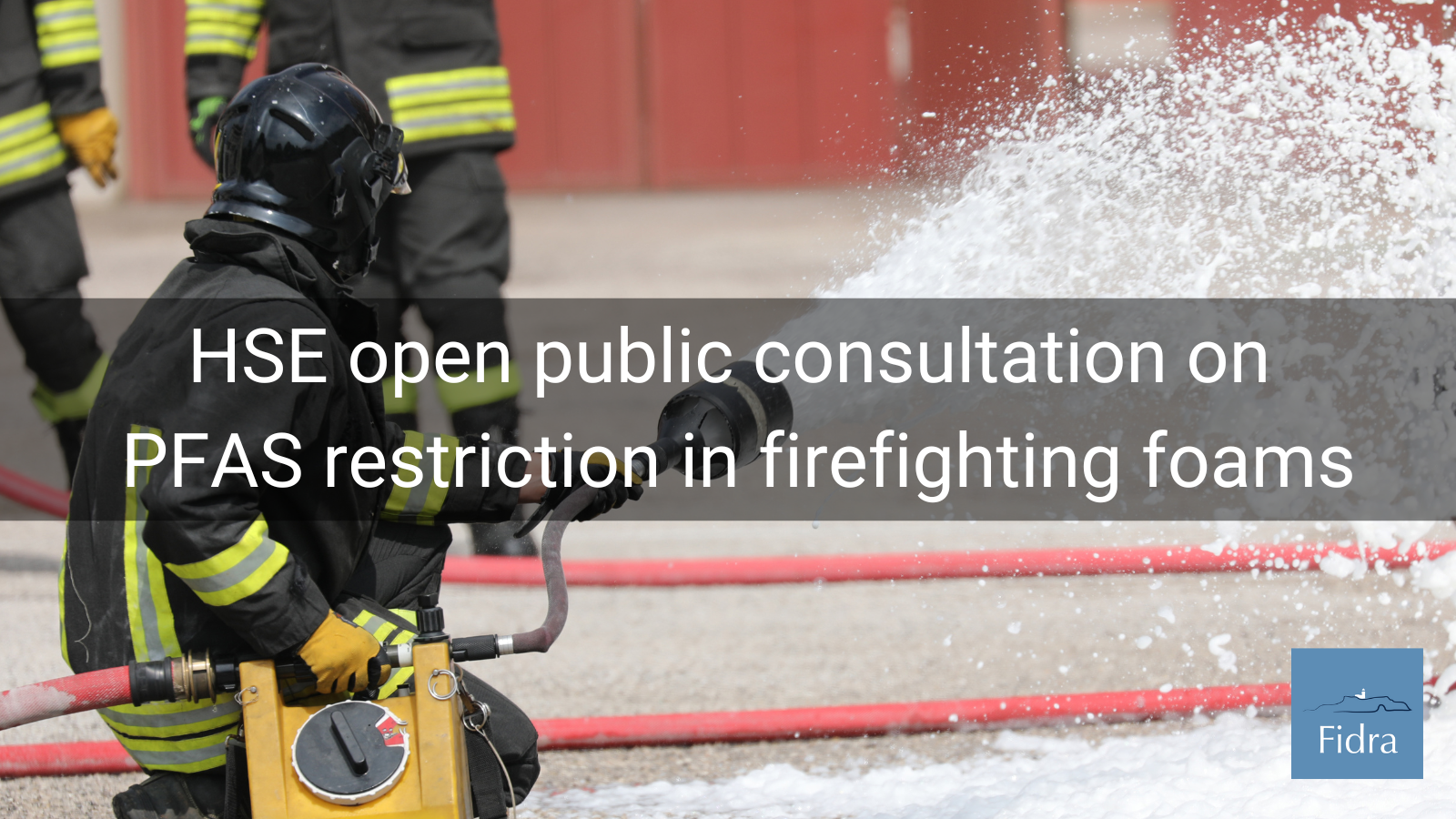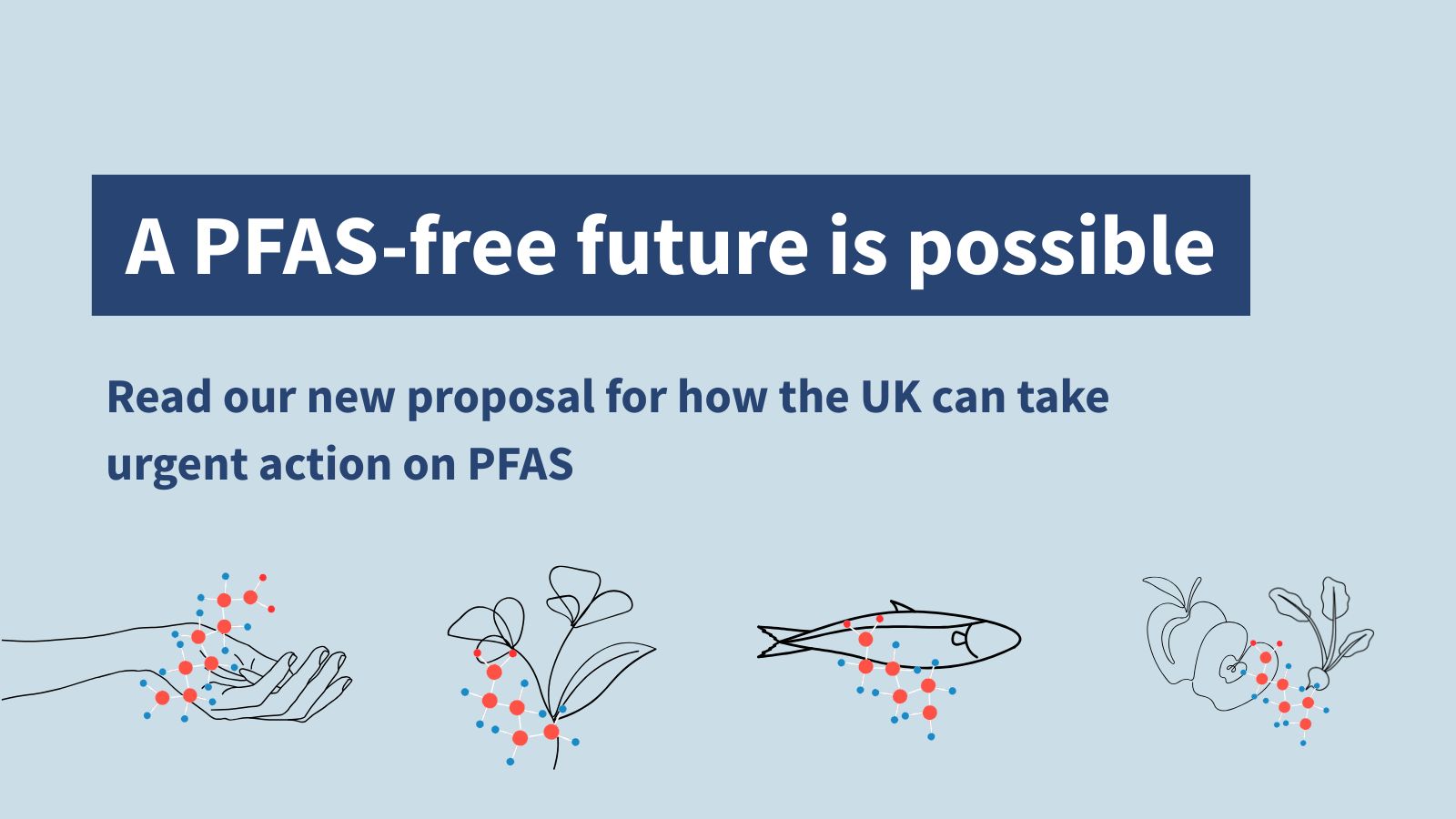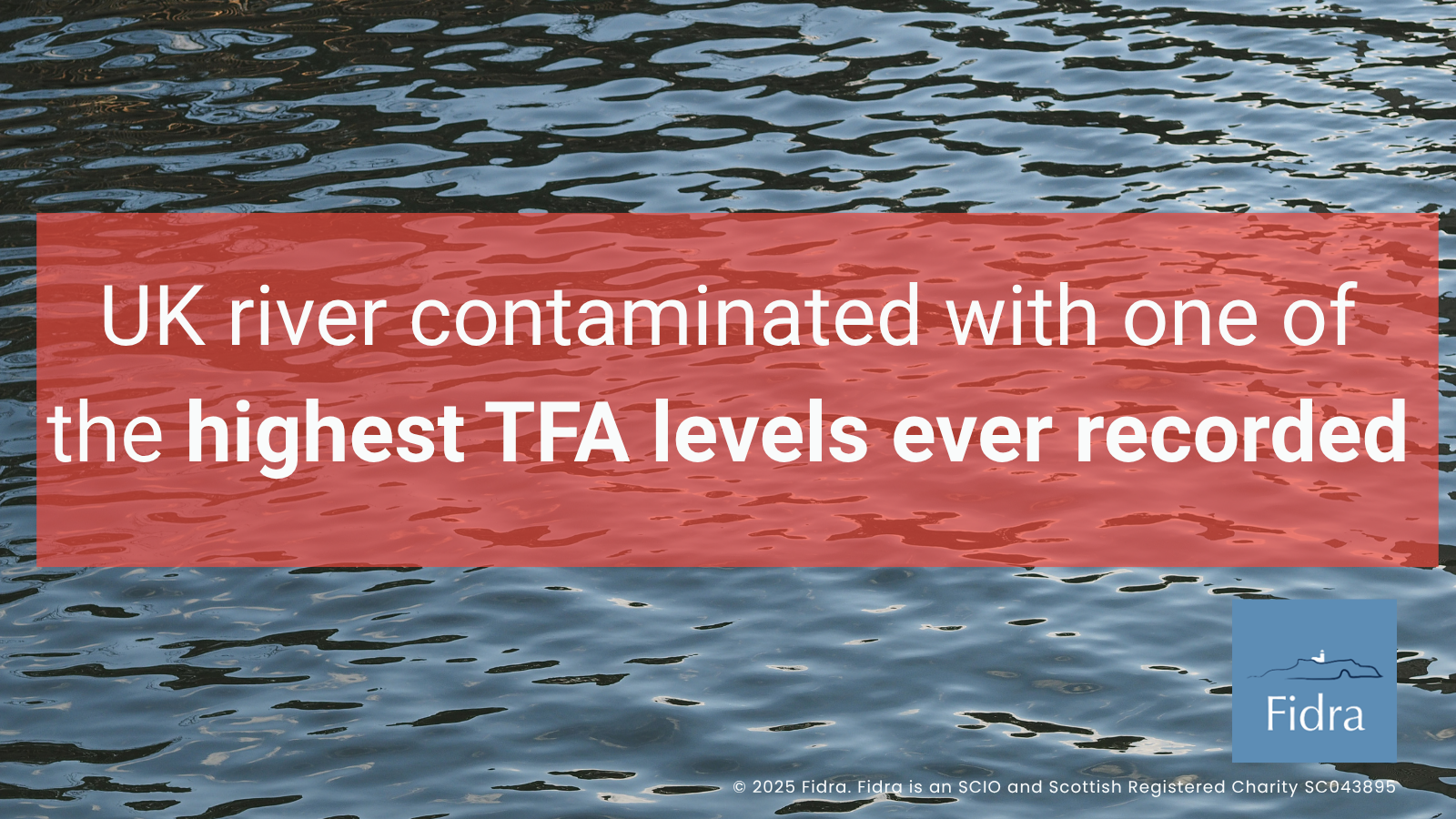News and Blogs

The UK has opened a public consultation on the restriction of PFAS (forever chemicals) in firefighting foams.

This proposal written by Fidra, CHEM Trust, Marine Conservation Society, Wildlife and Countryside Link and Breast Cancer UK, sets out a way forward for regulating PFAS ‘forever chemicals’ in the UK.

Why Fidra and other experts told MPs that a universal restriction on PFAS is the only way forward in the UK.

TFA was detected at 98% of the 54 sites tested, with some concentrations among the highest ever recorded globally.

The Environmental Audit Committee (EAC) has launched a new inquiry to investigate the risks posed by PFAS ‘forever chemicals’.

PFAS pesticides pose threats to environmental health. Read why a PFAS restriction is key to meeting new UK pesticide targets.

Find out more about Fidra’s latest BBC podcast appearance, alongside other PFAS experts, and hear why we need a restriction on all avoidable uses of PFAS in the UK.

A letter from leading scientists calls on the UK Government to regulate all PFAS as one group, as proposed by the EU, as the most effective way to tackle PFAS pollution.

Growing evidence of ‘forever chemicals’ in UK water sources highlights the urgent need to address widespread PFAS pollution.
